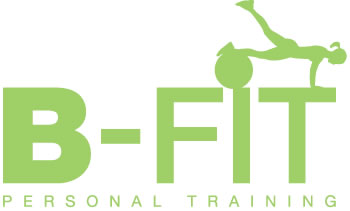We all know the peri/menopause is a significant life stage for women like us that is often accompanied by a range of physical, emotional and psychological changes. During this time, many women also continue to shoulder their numerous responsibilities, from managing careers to caring for the family household, which means the demands on their time and energy can be overwhelming and they find themselves “pouring from an empty cup”. This metaphor serves as a powerful reminder to us of the importance of self care for menopausal women, who may be at risk of neglecting their own needs when attending to the needs of others. The phrase “you can’t pour from an empty cup” suggests that just as a cup cannot pour out liquid if it’s empty, you can’t give your best to others if you’re emotionally, physically or mentally depleted. And the failure to prioritise your self-care can have detrimental implications, because it will lead to more stress, a possibility of burnout and a deterioration in your overall wellbeing.
Burnout is a state of chronic stress that can lead to physical and emotional exhaustion, cynicism and feelings of helplessness. And if you’re also dealing with symptoms such as hot flushes, night sweats, weight gain, joint pain, reduced libido, mood swings and burnout can exacerbate these symptoms, making it even more difficult to cope with your daily responsibilities. This is why things like mindfulness practices, regular exercise, eating healthy organic foods, taking supplements like Nutricalm and generally taking better care of yourself is essential to managing the demands of life during menopause, just like I’ve had to do in recent times. By prioritising my own wellbeing, I’ve been better equipped to support my family and clients and not burnout.
CLICK HERE TO FIND OUT MORE ABOUT NUTRICALM
Self care practices that focus on both physical and emotional health are crucial during menopause. Regular physical activity, for example, has been shown to alleviate some of the physical symptoms of menopause, such as joint pain and weight gain, while also improving your mood and reducing anxiety. Similarly, mindfulness and other relaxation techniques can help manage stress and promote better sleep, which is often disrupted during this time. Eating the right food also plays a vital role in managing menopausal symptoms. A balanced diet rich in organic fruits, vegetables, whole grains and lean proteins can help stabilise any mood swings, maintain your energy levels and support your overall health. You also need to make sure that you drink enough water, because hydration is equally important — it helps to manage symptoms such as hot flushes and maintains overall function of your body’s cells.
Moreover, don’t forget about your emotional wellbeing. Engaging with friends who are also sharing the experience can provide a much-needed outlet for expressing emotions and coping with the challenges you’re facing.
Don’t Neglect Yourself
One of the most common challenges faced by menopausal women is the tendency to put themselves at the bottom of their priority list. That’s because many of us have been conditioned to focus on the needs of others first — whether it’s their children, partners or employers — often at the expense of their own wellbeing. This self-neglect will only lead to feelings of depletion, resentment and even a sense of losing one’s own identity. When you continually give to others without taking time to care for yourself first, you may experience a range of negative emotions that include frustration, anger, rage and sadness. This emotional toll can further strain your relationships and diminish your ability to provide adequate care and support to others. In extreme cases, this self-neglect can lead to more serious mental health issues, such as depression or anxiety disorders.
To counteract self neglect, it’s crucial for you to practice self-compassion and prioritise your own needs first. This might involve setting strong boundaries with others, learning how to say no or delegating tasks that can be shared with other family members or colleagues. It’s important that you recognise that taking time out just for you isn’t selfish — rather, it’s a necessary component of maintaining your overall health and wellbeing.
Self care can take many forms — from engaging in hobbies and activities that bring you joy to setting aside time each day for some proper rest and relaxation. For some women, this may mean carving out time to take a morning walk before work, book a weekly yoga session or simply enjoying a cup of tea in peace — and with your phone on airplane mode. Whatever method you choose, the key is to create regular opportunities for self-nurturing activities that replenish your energy and restore your sense of inner peace and balance.
You may also need assistance from those around you to refill your cup, whether that support comes from family, friends or other professionals like your GP or friendly Weight Loss and Nutrition Coach (like yours truly!). Asking for help is often difficult, but it is essential and support can come in many forms. For example, you might seek help with household tasks or childcare or it might involve joining a support group for women going through menopause, where they can share experiences and gain insights from others who are facing similar challenges. Talking to your friends will also help to alleviate feelings of isolation and loneliness that some women experience during menopause. Simply having someone to talk to can make a huge difference in managing any emotional ups and downs.
Self-Care Is Never Selfish
Ultimately, the concept of “pouring from an empty cup” serves as a powerful reminder that self care isn’t a luxury — it’s a necessity, because the physical, emotional and psychological demands on your body during this life stage require you to be more proactive in maintaining your overall health and wellbeing. So, you need to make self care a non-negotiable part of daily life, which means it’s not selfish. Whether through exercise, relaxation, social connections or seeking the support of a professional who has worked with menopausal women to boost their health like myself, self care provides the foundation for navigating menopause with grace and strength — and without the guilt that often accompanies taking time out for yourself.
Menopause is a completely natural and inevitable part of life, but it doesn’t have to be a time of struggle and depletion like you’ve been conditioned to believe. By adopting a self-care routine that addresses both your physical and emotional needs, you’ll be able to navigate this transition with greater ease and confidence. The “pouring from an empty cup” metaphor is a poignant reminder that to care for others, you have to care for yourself first. And by addressing this emotional aspect of menopause, you’ll be able to navigate this life stage with greater ease. Replenishing your cup through self care will ensure that you’ll have the energy and resilience needed to face the challenges of menopause and beyond.
If you aren’t sure where to start when it comes to replenishing your cup and would love a FREE confidential chat about how to get started with your self care, then call or text me on 07748 298728 or CLICK HERE.
Love, Gaynor x





